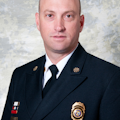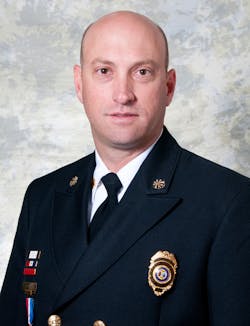I am intrigued with the concept of influence and appreciate every opportunity I’ve been given to see this in action. It has been interesting to spend time with some fire service icons who have spent a lot of time, energy and resources on behalf of the fire service in our Nation’s capital. I have also enjoyed reading many of the past columns of one of my predecessors, Hal Bruno, who certainly knew his way around Capitol Hill.
During all of this, I am also happy to say that I will soon live in close proximity to Washington, D.C. The National Fire Sprinkler Association (NFSA)—which has been in existence since 1905 and had offices in New York since 1914—has opened an office in Maryland. Why, you might ask, after 100 years, would you move now—and why to Maryland?
The answer is simple: to get closer to not only the nation’s fire service organizations but also to all the other stakeholders who impact the fire service. And I would be remiss to not mention that part of the “why” is to be closer to government! We also selected Maryland because of how it has led the way on many fire and life safety measures, from smoke alarm legislation to fire sprinkler requirements, and on and on.
Sharing stories
I recently had the chance to visit with all the Maryland congressional delegation staff members, who welcomed the NFSA to their great state and pledged to share the meeting information with their respective bosses. During these visits, I was reminded of how important it is for them to hear from you. We cannot overstate the importance taking the time to actually make an appointment and visit with our elected officials.
The congressional staffers listened to our stories, and when we spoke about the need for support of the Fire Sprinkler Incentive Act—a bipartisan bill that has the support of the Congressional Fire Service Institute (CFSI) National Advisory Committee, as well as many other nontraditional stakeholders—they all also asked about the FIRE Act grants program. To this, I was happy to explain that these grants have helped dramatically improve fire protection across America. Real stories were important to these individuals, and I was blessed to have knowledge and specific answers to share, covering examples from the smallest, most rural fire department to the most urban fire department, as well as small local associations to some of the largest national associations. We have all benefitted from this program, and we need to provide those success stories to make the case for it to continue.
We also thanked them for the support of FEMA, especially the USFA and NFA, and even encouraged them to urge the rapid appointment of critical positions within the Department of Homeland Security as soon as possible following the presidential election. While many of the national fire service organizations, like the IAFC and the IAFF, assist greatly in the process, I believe we can do better by letting your representatives and senators in critical seats hear from you.
Fire protection in America is important, and I keep hearing too many say that the USFA is a small fish in the federal pond, and that these politicians don’t care about fire and life safety. Well, I don’t believe that is the case, and I also believe that we as members of the American fire service can change that. Thinking back to an article I wrote titled “The Fire,” I am again reminded that it shouldn’t take a tragedy to get our voices heard. Even so, we should start talking so that when we say, “I told you so,” they will know it already.
Hal’s vision
On Nov. 8, 2011, we lost a great influencer on politics, Hal Bruno. Bill Webb, CFSI executive director, explained in his Firehouse’s 40th anniversary article how Hal impacted politics that influenced the fire service. Hal would be encouraging us to reach out and make a difference. He was a reporter who responded to the Our Lady of the Angels School fire and served as a moderator for a presidential debate. I can’t match that résumé, but I can work hard for you in D.C. and around the country. Get engaged at the local, state and national level; it will make a difference.
I look forward to the next chapters we will write together and to find the mark that we will leave on our nation’s fire service. Let’s remember Hal’s influence and dedicate ourselves to creating some of our own. The future of the fire service is in our hands.
About the Author

Shane Ray
SHANE RAY has been a volunteer firefighter since 1984 and a career firefighter since 1994. He has also served as a mayor for six years and the Tennessee Fire Chief’s Legislative Chairman for 12 years. Ray’s love for politics started as fire chief of the Pleasant View Volunteer Fire Department in Tennessee, where he served 13 years. He then served under Governor Nikki Haley in South Carolina as superintendent and state fire marshal. He currently serves as the president of the National Fire Sprinkler Association and is a lifetime member of the Pleasant View Volunteer Fire Department. Throughout his career, he has been committed to public service with a “Do It Different” mentality and that all stakeholders are important.
